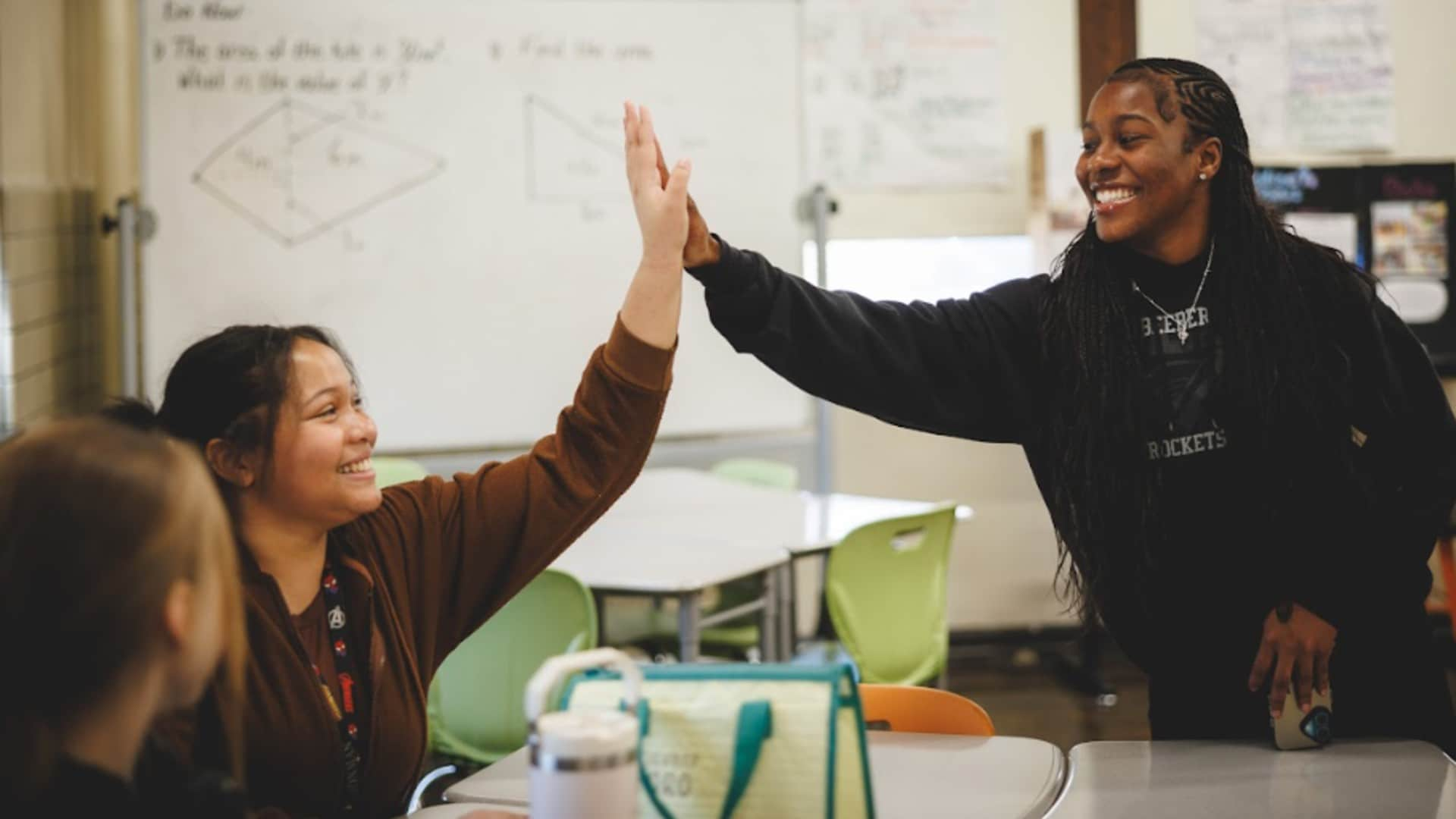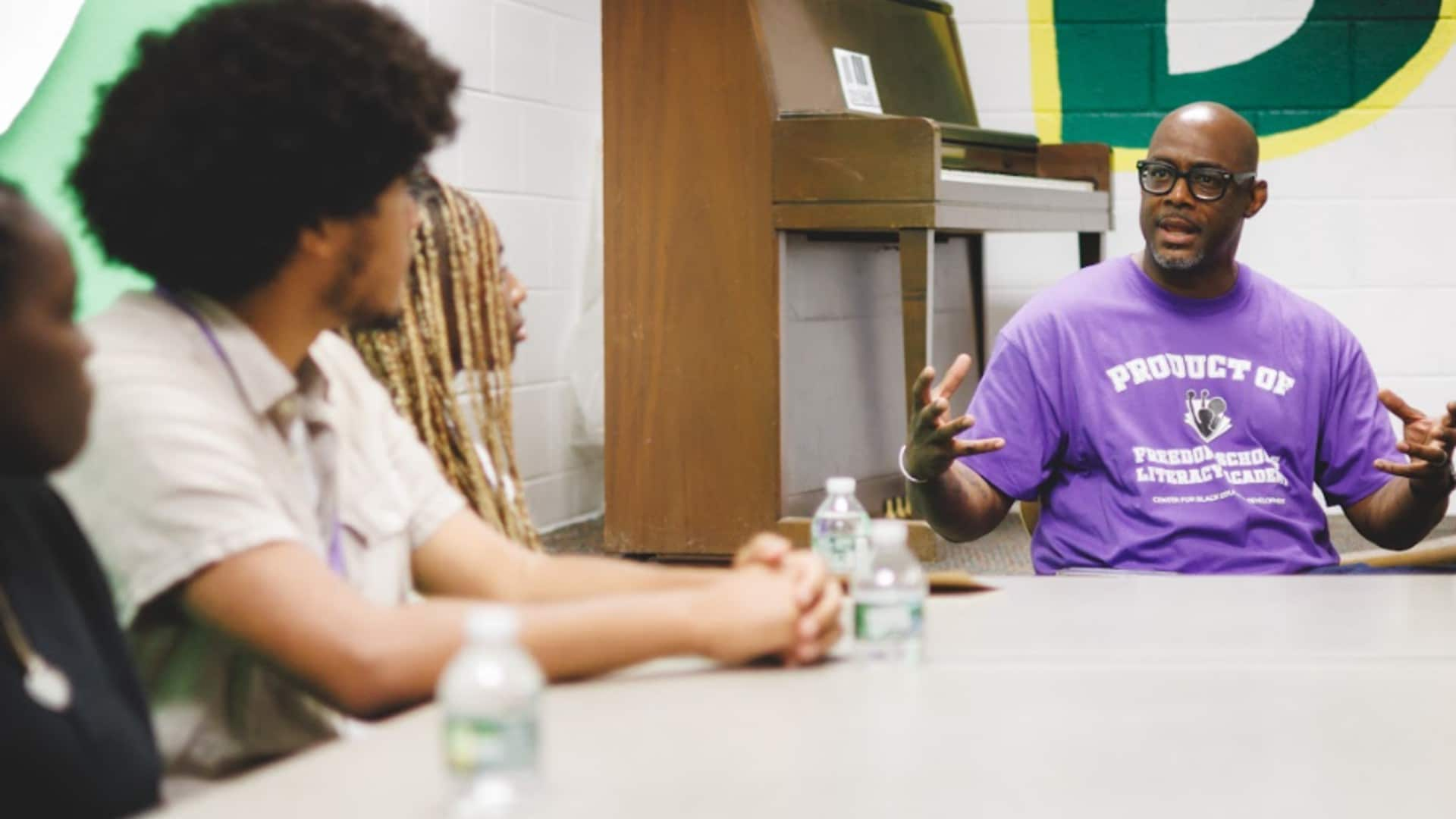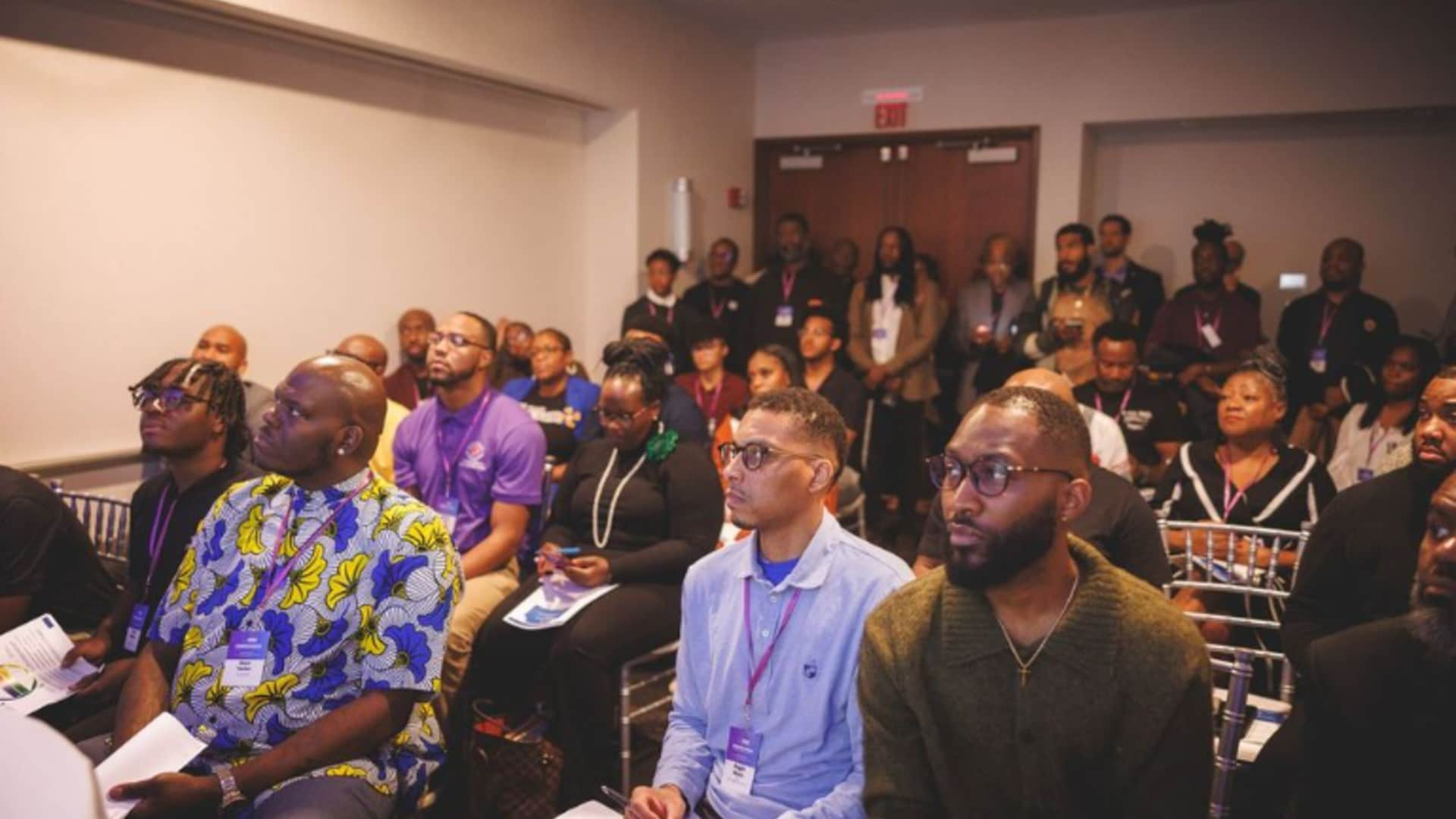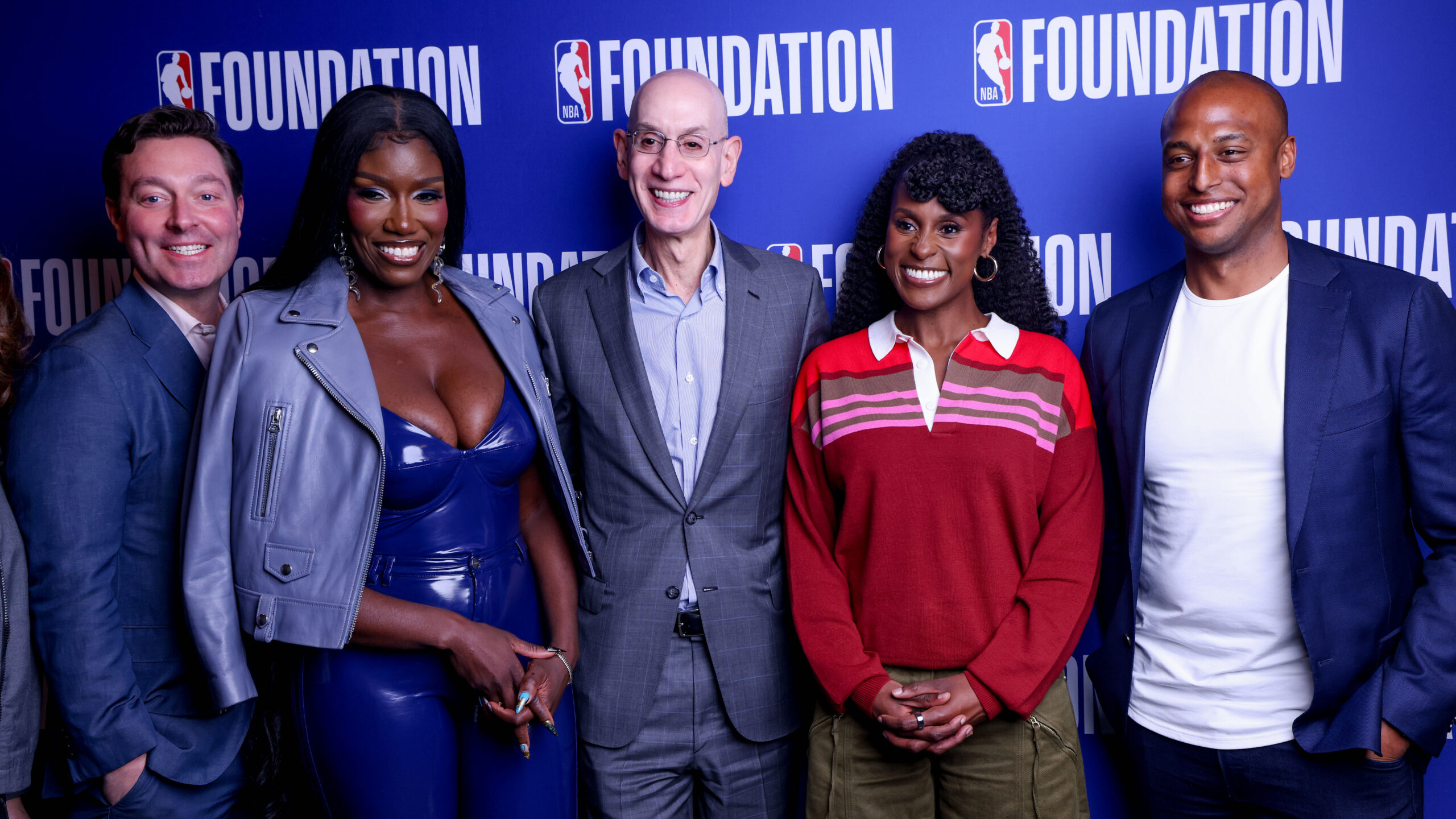
A Teaching Academy student gains hands-on classroom experience with guidance from a mentor teacher.
As students head back to school, the NBA Foundation is spotlighting the Center for Black Educator Development, a Philadelphia-based nonprofit on a mission to rebuild the Black teacher pipeline. Many students go their entire academic career without ever seeing a Black educator, despite research showing that representation boosts achievement, belonging and long-term success.
CBED aims to change that one classroom at a time.
CBED’s approach is long-term and intentional. From ninth grade through a teacher’s fifth year, the organization provides mentorship, professional development and community support to help aspiring educators succeed and thrive.
Building the pipeline
CBED’s journey starts with the Freedom Schools Literacy Academy, a summer program for rising first through third graders in Philadelphia. Literacy takes center stage, but so does inspiration. Students build foundational reading skills in high school and college apprentices step into classrooms alongside a certified mentor, gaining hands-on teaching experience that prepares them for careers in education.

Students celebrate success together, reflecting CBED’s commitment to building supportive, thriving learning environments.
Next comes the Teaching Academy, a four-year high school program that combines coursework, college credit and classroom placement with veteran teachers. Apprentices refine their instructional strategies, learn classroom management and teach before entering college-level education programs.
At the college level, the Future Teachers of Excellence Fellowship provides mentorship, structured professional development and access to a national network of peers and leaders. Fellows explore culturally responsive teaching, sharpen instructional practices, and receive guidance throughout their first years in the classroom. The program ensures educators are prepared not just to teach, but to lead, adapt and make a lasting impact on students and communities.
Centering students, community
CBED’s programs are rooted in the communities they serve. Every lesson, apprenticeship and fellowship emphasizes student-centered learning and culturally responsive teaching. By engaging students’ voices and perspectives, the programs teach future educators to connect deeply with the children in their classrooms.

Dr. Orpheus Williams mentors future educators through teacher pathway programs, helping them build skills and confidence for the classroom.
“Our apprentices and fellows learn early on that teaching is about more than textbooks,” says Dr. Orpheus Williams, CBED’s Chief Programming Officer. “It’s about seeing your students, listening to them, and responding to what they truly need to succeed.”
Programs like FSLA and the Teaching Academy foster classrooms where students thrive, apprentices gain real-world experience, and future educators understand the broader impact of representation, empathy and culturally relevant pedagogy.
Black male educators find their space

Educators gather at the annual Black Male Educators Convening, CBED’s annual conference focused on strengthening the Black teacher pipeline.
Every November, CBED hosts the Black Men in Education Convening, a three-day national gathering where more than 1,000 educators from across the country meet. With keynote speakers, breakout sessions and workshops on leadership, wellness and instructional practice, the event highlights the power and diversity of Black male teachers.
“For some young educators, this is the first time they’ve seen hundreds of Black male teachers in one place,” Dr. Williams notes. “It’s a powerful reminder that they are not alone and that this work is possible.” The convening inspires attendees, fosters mentorship and builds a network that spans the country, reinforcing the mission of CBED in tangible, life-changing ways.
Looking ahead
CBED is building for the future while shaping the present. CBED says their Teaching Academy is set to expand into new cities by 2026, and the fellowship program aims to support 500 educators by 2029. In addition, CBED says it is developing an AI-powered platform to provide curated teaching resources and an online community where educators can share best practices, access instructional tools and receive guidance throughout their careers.
“This is about scale, but it’s also about depth,” Williams said. “We’re preparing educators to not only enter the classroom but to stay, thrive and lead.”
At every stage, CBED officials say they ensure educators are equipped to inspire, guide and support students while creating classrooms where teachers and students alike can thrive. The organization continues to answer the call first voiced by students themselves: “We need Black teachers.”
To learn more about CBED’s programs, support their work, or get involved, visit thecenterblacked.org and discover how you can help strengthen the next generation of Black educators.









